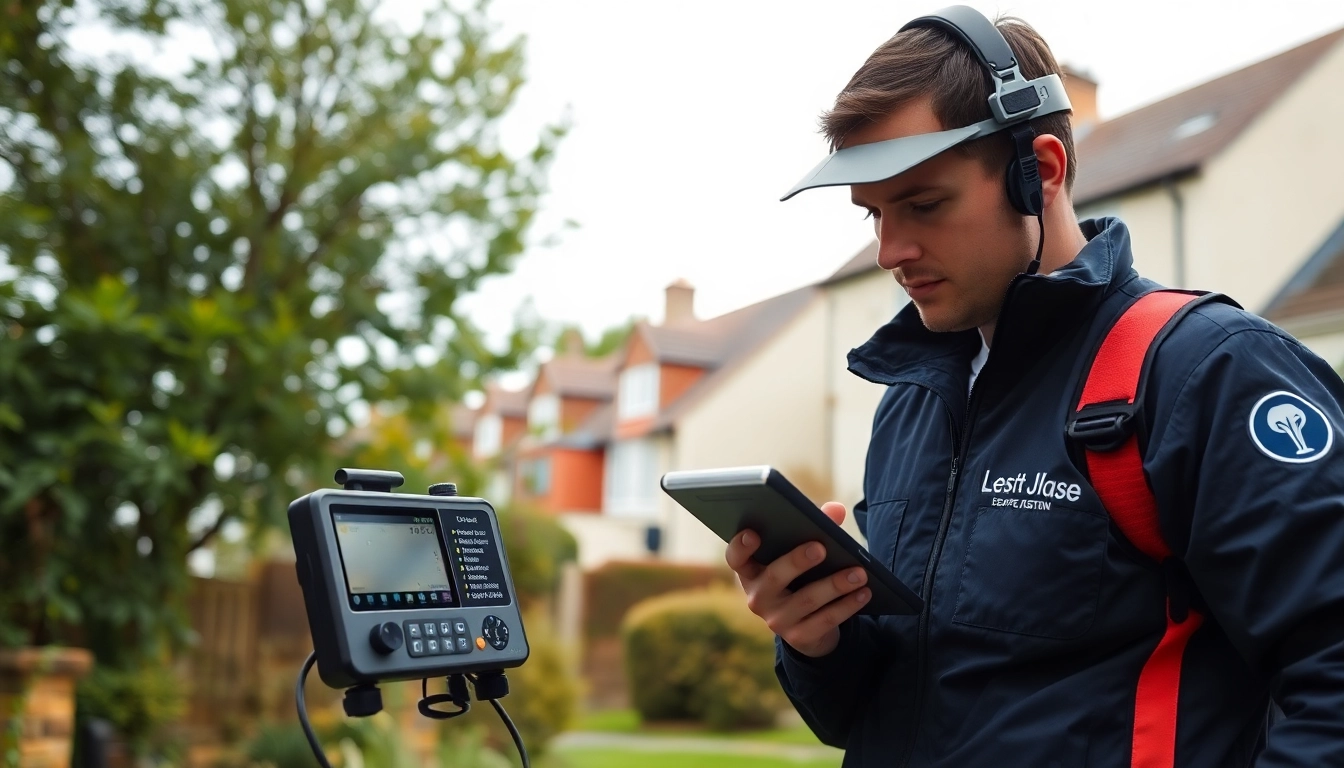Understanding Specialist Leak Detection
What is Specialist Leak Detection?
Specialist leak detection refers to the use of advanced technologies and the expertise of trained professionals to identify, isolate, and address leaks in various systems. This can encompass residential buildings, industrial settings, and infrastructural systems where unidentified leaks can lead to severe damage, costly repairs, and safety hazards. By utilizing non-invasive techniques, specialists can locate leaks without causing additional disruption to the property. For more detailed insight into these methods, see our comprehensive Specialist Leak Detection options.
Importance of Quick Detection
The significance of prompt leak detection cannot be overstated. Early identification of leaks can prevent a myriad of problems, including water damage, mold growth, and structural issues. Delaying detection can extend repair timelines and costs exponentially. Additionally, leaks can escalate into more severe problems; for instance, a minor plumbing issue can lead to extensive rot or undermine the foundation of a building.
Common Types of Leaks
There are several common types of leaks that specialist leak detection addresses:
- Water Leaks: These can occur in both residential and commercial settings, often leading to significant water damage if not detected early.
- Gas Leaks: These are particularly dangerous and require immediate attention, as they can pose fire hazards and health risks.
- Sewer and Wastewater Leaks: These leaks can lead to severe health hazards and unpleasant living conditions.
- Refrigerant Leaks: Found commonly in HVAC systems, unnoticed refrigerant leaks can hinder system performance and increase energy costs.
Signs Your Property Needs Specialist Leak Detection
Visual Indicators of Leaks
There are several visual indicators that may suggest a leak is present on your property:
- Water Stains: Yellowish or brown stains on walls or ceilings can indicate water exposure from a leak.
- Mold Growth: The presence of mold in damp areas is often a clear sign of water intrusion.
- Peeling Paint or Wallpaper: Damaged finishes may indicate underlying moisture issues.
- Wet Spots on Floors: If you notice dampness on your floors, especially near plumbing fixtures, this could point to leaks.
Audible Signs and Symptoms
Sometimes, leaks can be detected by listening for unusual sounds. These can include:
- Dripping Sounds: An audible drip can signify a leak in pipes or fixtures.
- Water Running: The sound of running water when no taps are in use can be a strong indicator of a leak.
- Air Hissing: In the case of gas leaks, a hissing sound is a critical sign to address immediately.
Unexpected Water Bills
A sudden spike in your water bill can indicate a hidden leak. If your usage hasn’t increased significantly but billing reflects otherwise, it’s wise to investigate further. An unexpected rise in costs can not only impact your budget but also highlight an urgent leak that can lead to property damage.
Techniques Used in Specialist Leak Detection
Acoustic Leak Detection Methods
Acoustic leak detection leverages sound technologies to identify leaks. Technicians use sensitive microphones to listen for the telltale sound of water leaking from pipes. This method is particularly effective for underground and concealed leaks where visual access is limited. By amplifying the sounds emanating from the leaks, technicians can precisely pinpoint the location, reducing the need for guesswork and invasive exploratory measures.
Thermal Imaging Technologies
Thermal imaging is another advanced technique utilized in leak detection. This method involves the use of infrared cameras that sense temperature variations in building materials. Water leaks typically cool surrounding areas, making them appear differently in thermal images. This technology allows for quick inspections, delivering accurate leak location data without damaging walls or flooring—a game changer in leak detection.
Smoke Testing for Leaks
Smoke testing is a method commonly used to identify leaks in drainage systems. During this procedure, harmless smoke is introduced into the plumbing system. Any points where smoke escapes indicate a leak. It’s a highly visual method that quickly demonstrates to technicians and property owners where potential issues lie, enabling targeted repairs.
Benefits of Hiring a Specialist for Leak Detection
Professional Expertise and Tools
One of the primary advantages of hiring a leak detection specialist is the access to professional expertise and advanced tools that most property owners typically lack. Specialists are trained to identify subtle signs of leaks that may go unnoticed by untrained eyes. Moreover, they employ state-of-the-art technology, ensuring precise detection and minimal disruption to your property.
Preventive Measures and Solutions
In addition to locating leaks, specialists provide valuable preventive measures to mitigate future leak risks. They can examine existing plumbing systems for vulnerabilities, recommend optimal upkeep procedures, and suggest upgrades to pipes or fixtures. This level of proactive maintenance helps secure your property and saves you from costly repairs down the line.
Long-Term Cost Savings
While hiring specialists may incur an upfront cost, the long-term savings can be exponential. By addressing leaks promptly, property owners can avoid extensive water damage, mold remediation, and high utility bills. Investing in specialist leak detection is not merely a repair action; it’s an essential preventive measure guarding against future financial burdens.
How to Choose the Right Specialist for Leak Detection
Evaluate Qualifications and Experience
When selecting a leak detection specialist, it’s crucial to assess their qualifications and experience thoroughly. Look for certifications and credentials that indicate the technician has been trained in the specifics of leak detection. Additionally, professionals with years of experience will likely have encountered a wide array of issues, enhancing their ability to handle complex leak situations.
Reading Reviews and Testimonials
Customer reviews and testimonials can provide insight into a specialist’s reliability and service quality. Investigating online reviews can highlight strengths or potential concerns others have faced, allowing you to make a more informed decision. Trustworthy specialists will have a track record of satisfied clientele who can vouch for their effectiveness and professionalism.
Understanding Pricing Structures
Before making a final decision, ensure you understand the pricing structures in place. Some specialists may charge flat rates, while others may base their fees on the extent of the job. Be wary of unusually low bids, as they may compromise service quality. Instead, look for a balanced approach where cost aligns with the expertise and level of technology employed in their services.



